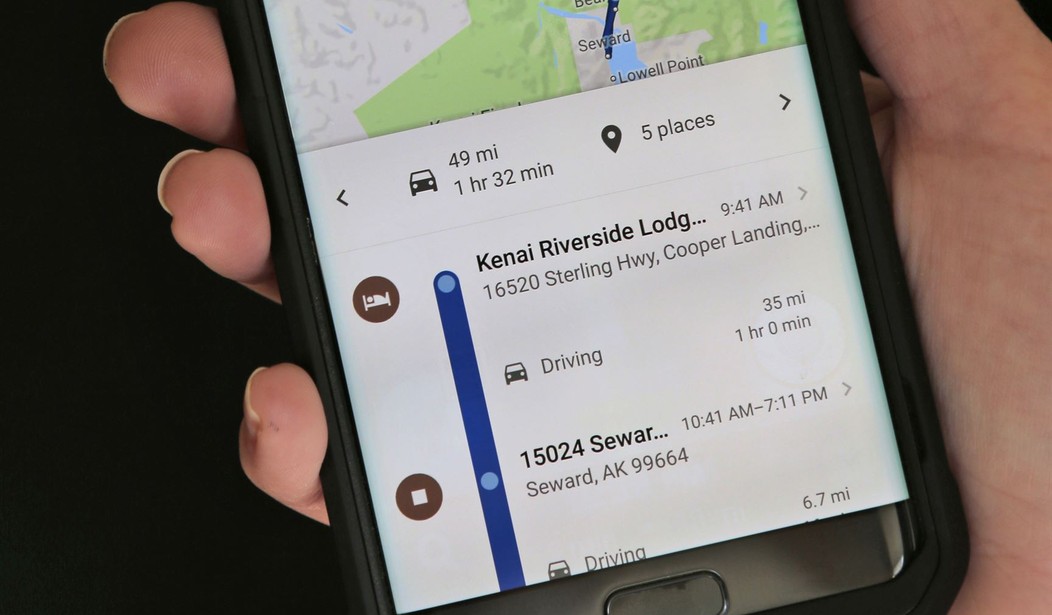The Federal Trade Commission is suing a location data broker over the company’s sale of geolocation information that exposes people’s visits to abortion clinics.
The FTC’s lawsuit against Kochava, an adtech company based in Sandpoint, Idaho, was filed in federal court in Idaho on Monday, according to NBC News. The lawsuit alleges that Kochava was unfairly selling sensitive data, violating federal laws on “unfair or deceptive practices.”
“Kochava collects a wealth of information about consumers and their mobile devices by, among other means, purchasing data from other data brokers to sell to its own customers,” the lawsuit reads. “Kochava then sells customized data feeds to its clients to, among other purposes, assist in advertising and analyzing foot traffic at stores or other locations. Among other categories, Kochava sells timestamped latitude and longitude coordinates showing the location of mobile devices.”
The lawsuit spells out how Kochava exposes people’s visits to abortion clinics and those who perform abortions. In the lawsuit, the FTC calls abortion clinics a “women’s reproductive health clinic.”
For example, the data may be used to identify consumers who have visited an abortion clinic and, as a result, may have had or contemplated having an abortion. In fact, in just the data Kochava made available in the Kochava Data Sample, it is possible to identify a mobile device that visited a women’s reproductive health clinic and trace that mobile device to a singlefamily residence. The data set also reveals that the same mobile device was at a particular location at least three evenings in the same week, suggesting the mobile device user’s routine. The data may also be used to identify medical professionals who perform, or assist in the performance, of abortion services.
Recommended
In a statement published Monday, Samuel Levine, the director of the FTC’s Bureau of Consumer Protection, said “Kochava is enabling others to identify individuals and exposing them to threats of stigma, stalking, discrimination, job loss, and even physical violence.”
“Where consumers seek out health care, receive counseling, or celebrate their faith is private information that shouldn’t be sold to the highest bidder,” Levine said. “The FTC is taking Kochava to court to protect people’s privacy and halt the sale of their sensitive geolocation information.”
Townhall covered Aug. 19 that the FTC was threatening to sue Kochava over their practices. In July, President Biden signed an executive order protecting abortion access Biden summoned the FTC to help guard data pertaining to abortion.
“The Commission is committed to using the full scope of its legal authorities to protect consumers’ privacy. We will vigorously enforce the law if we uncover illegal conduct that exploits Americans’ location, health, or other sensitive data,” the agency wrote in a blog post days after Biden signed the order.
In the FTC’s blog post, the agency outlined how it would protect location data pertaining to abortion.
Now let’s consider a particularly sensitive subset at the intersection of location and health: information related to personal reproductive matters – for example, products that track women’s periods, monitor their fertility, oversee their contraceptive use, or even target women considering abortion.
The concerns many have expressed about the risk of misuse are more than just theoretical. In 2017, for example, the Massachusetts Attorney General reached a settlement with marketing company Copley Advertising, LLC, and its principal for using location technology to identify when people crossed a secret digital “fence” near a clinic offering abortion services. Based on that data, the company sent targeted ads to their phones with links to websites with information about alternatives to abortion. The Massachusetts AG asserted that the practice violated state consumer protection law.
And just recently, the FTC reached a settlement with Flo Health, alleging the company shared with third parties – including Google and Facebook – sensitive health information about women collected from its period and fertility-tracking app, despite promising to keep this information private.
The misuse of mobile location and health information – including reproductive health data – exposes consumers to significant harm. Criminals can use location or health data to facilitate phishing scams or commit identity theft. Stalkers and other criminals can use location or health data to inflict physical and emotional injury. The exposure of health information and medical conditions, especially data related to sexual activity or reproductive health, may subject people to discrimination, stigma, mental anguish, or other serious harms. Those are just a few of the potential injuries – harms that are exacerbated by the exploitation of information gleaned through commercial surveillance.
Since the overturn of Roe, the Biden administration launched a "whole-of-government" effort to support abortion rights, including pointing underage girls to resources to obtain an abortion without parental notification or consent and unveiling a DOJ task force aimed at protecting abortion.
To date, Biden’s DOJ has not prosecuted any individuals responsible for the attacks on pregnancy centers and churches since the Supreme Court’s ruling.

























Join the conversation as a VIP Member